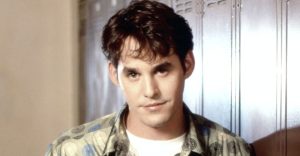Why Disney Turned Down Back To The Future

Considering the accolades Back To The Futurenow holds, it was a mistake for any major studio to turn it down, so why did Disney pass on the movie back in the early 1980s? Back to the Future (1985), now nationally considered one of the greatest films of all time, was a cultural phenomenon at its release, becoming the highest-grossing movie of the year ahead of franchise movies Rambo First Blood: Part II and Rocky IV. Not uncommon for a Spielberg-backed fantasy movie, Back to the Future was also nominated for multiple Academy Awards and its theme song, “The Power of Love” by Huey Lewis and the News skyrocketed in popularity around the world.
The movie’s sci-fi fantasy elements of time travel, appearing as a “Darth Vader” alien-like figure in the 1950s, and creating fads 30 years before they exist are what most audiences take away from Back to the Future, though the film isn’t without its controversial elements. When Marty lands from 1985 in 1955, he is tasked with trying to get his parents together as teenagers. In his attempts, Marty unintentionally becomes the object of his mother Lorraine’s affections, which makes the conflict awkward for both Marty and the audience. Even worse than simply rejecting his mother’s come-ons, Marty devises a plan with feigned sexual advances on Lorraine so that his father George can be the hero and save her. The movie ends with all well, and even better, for the entire McFly family in 1985, though it’s a wonder how Marty could easily go back to family life after his interactions with his teenage mother.
Back to the Future writer Bob Gale revealed in an interview that the film had been rejected at least 40 times. One such production company that denied the movie a few times was Walt Disney Productions, citing that the movie was far too risqué to fall under their brand. Disney is known for family-oriented themes, and a movie that involves the incestual undertones of a mother pushing advances on her son was far too suggestive for them to back. Not only did the script contain the implications of a mother and son romance, one scene included Biff attempting to sexually assault Lorraine in a car.

Aside from being offered to Disney, director Robert Zemeckis shopped around at studios like Columbia Pictures who initially rejected Back to the Future before securing the rights in an IP deal. When Back to the Future was first pitched to Columbia, the creators thought it would align with their raunchy teen comedies like Animal House, Porky, and Fast Times at Ridgemont High. Columbia president Frank Price ironically believed Back to the Future was much too tame and passed on the movie’s second draft, though ended up securing the rights in an exchange in a moment where Universal needed to win back rights to a Columbia project.
The head of Universal Studios already made some changes to the script once it was secured, including an attempt to title the movie Space Man from Pluto, changing Doc Brown’s name from simply Professor Brown, making Marty’s mother’s name Lorraine, and changing Doc’s pet from a chimpanzee to a dog, though the amount of amendments Disney likely would have made far surpasses a few tweaks to details. Back to the Future is a beloved cult classic despite its comedic incestual themes and a Disney version could have meant destroying much of what makes the film appeal to adults and kids alike. Considering the cultural hold Back to the Future still has and the sequels it spawned, Disney is probably still sore at passing on the opportunity to produce it and secure the IP rights – just imagine Universal Studios’ Back to the Future ride at Disneyland.
About The Author


















